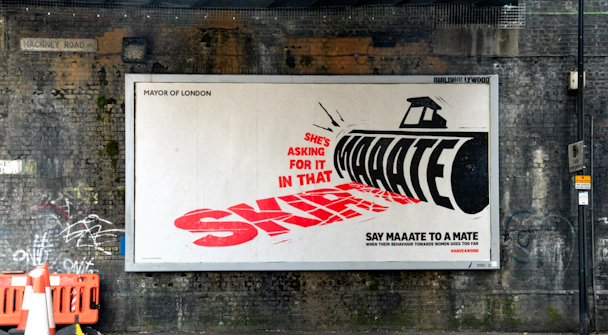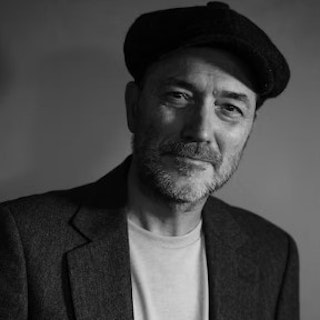Are the imperfections in Ogilvy’s ‘Maaate’ campaign why it works?
Gordon Young, editor-in-chief and co-founder of The Drum, shares his view on a divisive Ogilvy misogyny campaign that at the very least got the message across.

Congratulations to Ogilvy. Love it or hate, you have to admit its anti-misogyny campaign on behalf of the Mayor of London, must have hit every KPI within hours of launch.
This campaign, which subverted the word ‘Maaate’, sparked a UK-wide conversation - thanks to extensive coverage across all mainstream media.
Advertisement
Now, in fairness, a lot of the coverage was a little on the negative side. So much so that the Ogilvy’s Behavior Unit, who dreamt up the drive, spoke to The Drum’s Hannah Bowler to deal with the criticism head-on.
They explained that the campaign aims to deal with "low-level misogyny" - by encouraging men to call out comments which cross the line. They acknowledged a 'maaate' doesn't cut the mustard on the more serious offenses.
So for example, if you are in a pub - and a member of your group says something off about women - you should say ‘maaate’ and explain why they are in the wrong.
Watch it below.
The likes of The Times and Daily Mail were not impressed. ‘Patronizing, totally inadequate, and a waste of public money’ said some. Others asked why friends, as opposed to the perpetrators, were being asked to call out dodgy behavior.
Advertisement
To me, there were three problems with the campaign.
Sometimes the messenger is as important as the message. The Mayor of London was plastered over all the executions and I reckon that was a mistake. On one level some people will disagree with Sadiq Khan just because he is Sadiq Khan. But on others, members of the target audience will not appreciate being lectured by an authority figure such as the Mayor.
Police Scotland had a similar challenge when it launched its That Guy' video, which dealt with similar issues. But Police Scotland opted not to reference itself at all, understanding that viewers would not appreciate a police lecture. It went on to win many awards and quite right too.
Suggested newsletters for you
I found the video for this campaign a bit cringe, possibly because it does not reflect how people would behave in real life. It portrayed men calling out a friend for being sexist, and then discussing why he was in the wrong. It just struck me as an unrealistic scenario. Men would not behave like this in such a setting. It is not to say they cannot deal with misogyny, but they would probably do it in a less hectoring way.
Finally the poster - they look like a work of art - but I am not sure the average bloke would get the message as they sped past on the way to meet their maaates.
But for all the problems, there is no doubt the campaign has been a great success. It is almost as though the imperfect work, has made the whole thing work.
It is a reminder that sometimes the only thing worse than being talked about is not being talked about.
There have been many similar campaigns in the past but none have generated this much comment - has the Ogilvy Behavior Unit maybe outsmarted the critics?

